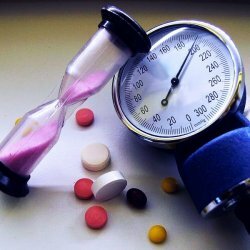The norms of vitamin intake per day
 Many people who care about their health, just go to the pharmacy and buy vitamins. The recipe for them is not needed, their choice is huge. Some people, for whom the goal, as long as possible to remain young, use daily very large doses of vitamins. Someone urgently advises to take vitamins daily, others are sure that it is useless, and others in general believe that there is only one harm from them. In the article "Norms of vitamin intake per day" we will talk about the consumption per day of the body's required amount of vitamins. We will tell you which products contain the optimal amount of vitamins per day.
Many people who care about their health, just go to the pharmacy and buy vitamins. The recipe for them is not needed, their choice is huge. Some people, for whom the goal, as long as possible to remain young, use daily very large doses of vitamins. Someone urgently advises to take vitamins daily, others are sure that it is useless, and others in general believe that there is only one harm from them. In the article "Norms of vitamin intake per day" we will talk about the consumption per day of the body's required amount of vitamins. We will tell you which products contain the optimal amount of vitamins per day.
1. Vitamin A . The daily norm of vitamin A for a person is contained in 30 g of carrots, either in 200 g of spinach, or in 130 g of melon. Vitamin A supports eyesight, strengthens teeth, rejuvenates the skin. In case of an overdose, the skin dries up, the bones become brittle, and the red blood cells are damaged.
2. Vitamin
C . It helps to strengthen the immune system, heals wounds. The daily norm of vitamin C for a person is contained in 80 g of sweet pepper, or in 100 g of broccoli, or 150 g of strawberry. An overdose of a vitamin can lead to the formation of kidney stones.3. Vitamin D . The use of this vitamin strengthens the bones, it is useful for the kidneys. However, an overabundance of it leads to the fact that the body produces the necessary lime. To replenish the body of this vitamin, you need to eat 150g a week mackerel, herring, trout. Either enough to eat 250 g of champignons.
4. Vitamin E . He takes part in the construction of red blood cells, improves the protective function of cells. The daily norm of it is contained in 1 tea spoon of sunflower oil, or in 2 tablespoons of rapeseed oil. And also enough to eat 30 g of almonds. However, an excess of vitamin in the body helps to weaken the immune system, as well as increase the risk of cancer.
5. Vitamin K . It promotes blood clotting, and also strengthens bones. The daily norm of it is contained in 100 g of beef, or in 120 g of oat flakes, in 15 g of parsley, in 50 g of cauliflower. Consequences of an overdose are not known.
6. Vitamin H . The daily norm of this vitamin is contained in 100 g of soybeans, or 100 g of beef kidneys. Vitamin H assists in the assimilation of fats, improves the condition of the skin, hair and nails. The effects of an overdose are not known.
7. Vitamin B 1. Promotes memory improvement, improves bowel function. Its daily norm is contained in 120 g of pork fillet, in 150 g of soybeans, in 75 g of wild rice, in 400 g of peas. But an overabundance in the body of this vitamin can lead to a violation of the heart rate.
8. Vitamin B 2. Its task is to regulate the metabolism, improve the structure of nails and hair. The daily intake rate of it is contained in 800ml of milk, either in 800 ml of yogurt, or in 50g of calf kidney. The consequences of an overabundance in the body of this vitamin are not known.
9. Vitamin B 3. This vitamin helps restore the nervous system, and also helps regulate blood sugar and cholesterol. However, his overdose threatens you with the development of gout, and smokers will have a higher risk of cancer. The optimal daily rate is contained in 200 g of turkey breast, in 200 g of soup chicken. And also using 180g oyster mushrooms, you will get the necessary amount of vitamin B 3.
10. Vitamin B 5. This vitamin helps digestion. It is needed for the production of hormones and cellular metabolism. The daily norm of the vitamin you get, if you eat 75 grams of Baltic herring, 80 g of calf liver, 200 g of white mushrooms, 300 g of watermelon.
11. Vitamin B 6. It participates in the formation of red blood cells, as well as in protein metabolism. The optimal daily norm of the vitamin B 6 is contained in 150g of salmon, or 400g of potatoes, or 450g of bananas, or 300g of avocado. With the continued use of more vitamin, partial paralysis of the legs or hands may occur, or a feeling of numbness may occur.
12. Vitamin B 9. Helps strengthen the brain, forms protein and blood cells. Overabundance of the vitamin in the body will lead to sleep disturbance and to mental disorders. The daily intake of vitamin B 9 is contained in 250 g of peas, 350 g of cauliflower, 400 g of asparagus, and 70 g of beef liver.
13. Vitamin B 12. It is involved in the process of hydrogen transport to cells, enhances the accumulation of protein. An excess of it contributes to the appearance of heart failure, pulmonary edema, peripheral vascular thrombosis, hives and anaphylactic shock. The optimum daily norm of vitamin B 9 is contained in 30 g of mackerel, in 90 g of camembert cheese.
Themselves of vitamins per day can not be used above daily intake. Namely: vitamin A - 400 micrograms, vitamin C - 225 mg, vitamin D - 5 micrograms( and with 65 years - 10 micrograms), vitamin E - 15 mg, vitamin K - 80 micrograms, vitamin H - 180 microgram, vitamin B 1 - 4 mg, vitamin B 2-4.5 mg, vitamin B 3-15 mg, vitamin B 5-18 mg, vitamin B 6 -5, 4 mg, vitamin B 9 - 400 micrograms, vitamin B 12 - up to 9 micrograms.
Pay attention to the dosage.
Many drugs have too high a dosage. Therefore, you should carefully read the composition of vitamins. Remember that pills are not the same as fruits and vegetables. They do not have many nutrients in their composition.
Do everyone need extra vitamins?
In additional use of vitamins are needed:
- Those who eat too little, or whose diet is very limited;
- patients who for years stick to the diet;
- vegetarians, who do not eat even dairy products and eggs;
- professional athletes;
- people who have reached the age of 75;
- pregnant women.



